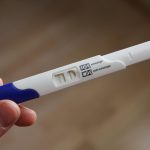Does Kisspeptin Shot Help With Low Libido?

Loss of libido or reduced sexual desire is a common problem affecting up to 1 in 5 men – and even more women – at some point in their life. It is not unusual for a person’s interest in sex to fluctuate over different periods of their life due to hormonal changes, age, and stress.
However, low libido can be a problem if it causes stress, affects a person’s overall well-being, or leads to anxiety about their relationship. Low libido can have an underlying medical cause, or it may be due to lifestyle factors. In this article, we explore the causes of low libido in men and women, the potential treatments, and when to speak with a doctor.
What is kisspeptin?
Kisspeptin is a protein present in the hypothalamus (a part of the brain that controls the release of several important hormones in the body). Kisspeptin plays a major role in controlling reproductive hormones in both men and women. Specifically, kisspeptin regulates the release of ‘gonadotrophin releasing hormone’ (GnRH) from the hypothalamus. GnRH, in turn, stimulates the release of the hormones, luteinising hormone (LH) and follicle-stimulating hormone (FSH) from the pituitary gland, into the bloodstream. These two hormones act on the testes in men and ovaries in women to produce sex steroids, namely testosterone in men and oestradiol in women. Testosterone and oestradiol are the hormones responsible for the physical and emotional changes that occur during puberty in order to transition into adulthood.
Kisspeptin has a non-hormonal role too and was originally named ‘metastin’ due its ability to prevent the spread of cancer (metastasis).
How is kisspeptin controlled?
Kisspeptin is released from nerve cells in the hypothalamus, together with two other proteins, neurokinin B and dynorphin. Consequently, the nerve cells making Kisspeptin, Dynorphin and Neurokinin B are popularly referred to as ‘KNDy’ (pronounced ‘candy’). It is believed that these proteins act in concert to induce the release of GnRH in a pulsating manner, which is important for its ability to stimulate LH and FSH.
Does kisspeptin Shot Help With Low Libido?
Yes, new studies indicate that kisspeptin may be a treatment option for low sexual desire in men and women, according to results from two small randomized controlled trials.
The data suggest that injections of kisspeptin can boost sexual desire in men and women and can increase penile rigidity in men.
Together, these two studies provide proof of concept for the development of kisspeptin-based therapeutics for men and women with distressing hypoactive sexual desire disorder (HSDD), study investigator Alexander Comninos, MD, PhD, Imperial College London, United Kingdom, said in a news release.
One study was published online February 3 in JAMA Network Open. The other was published late last year in the same journal.
Unmet Need
HSDD affects up to 10% of women and 8% of men worldwide and leads to psychological and social harm, the news release notes.
“There is a real unmet need to find new, safer, and more effective therapies for this distressing condition for both women and men seeking treatment,” Comninos said.
Kisspeptin is a naturally occurring reproductive hormone that serves as a crucial activator of the reproductive system. Emerging evidence from animal models shows that kisspeptin signaling has key roles in modulating reproductive behavior, including sexual motivation and erections.
In a double-blind, placebo-controlled, crossover study, the researchers enrolled 32 healthy heterosexual men (mean age, 37.9 years) who had HSDD.
At the first study visit, the menwere given an infusion of kisspeptin-54 (1 nmol/kg/h) or placebo (saline) over 75 minutes. The participants then crossed over to the other treatment at a second study visit at least 7 days later.
The active treatment significantly increased circulating kisspeptin levels. A steady state was reached after 30 to 75 minutes of infusion, the researchers report.
Similar Data in Men, Women
While the men viewed sexual videos, kisspeptin significantly modulated brain activity on fMRI in key structures of the sexual-processing network compared with placebo (P = .003).
In addition, the treatment led to significant increases in penile tumescence in response to sexual stimuli (by up to 56% more than placebo; P = .02) and behavioral measures of sexual desire ― most notably: increased happiness about sex (P = .02).
Given the significant stimulatory effect of kisspeptin administration on penile rigidity, coupled with its demonstrated pro-erectile effect in rodents, future studies should examine the use of kisspeptin for patients with erectile dysfunction, the researchers write.
The second study included 32 women with HSDD and had the same design. Its results also showed that kisspeptin restored sexual and attraction brain processing without adverse effects.
“It is highly encouraging to see the same boosting effect in both women and men, although the precise brain pathways were slightly different, as might be expected,” co-investigator Waljit Dhillo, PhD, Imperial College London, said in the news release.
“Collectively, the results suggest that kisspeptin may offer a safe and much-needed treatment for HSDD that affects millions of people around the world; and we look forward to taking this forward in future larger studies and in other patient groups,” Dhillo added.





